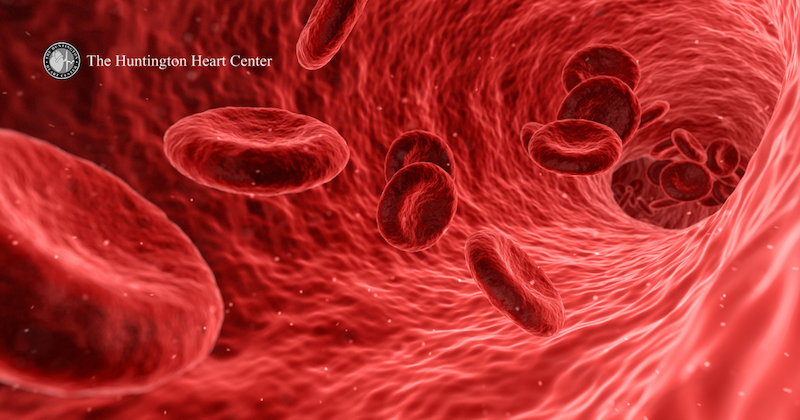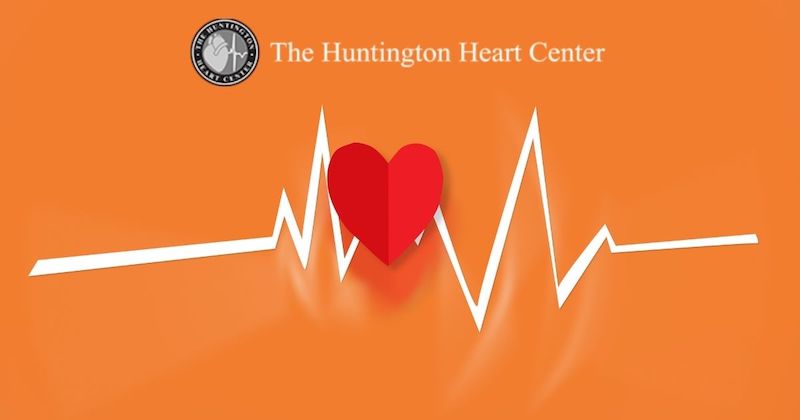Welcome to Huntington Heart Center Blog
April Is Stress Awareness Month
Stress Awareness Month comes around each April and you guessed it, today’s blog will discuss stress and how it affects the heart. The effect of stress on the heart is a concept that is pretty well-known to most. But do you really know much about the full breath of issues that stress causes? And is what you think you know truth or myth?
Before we get started it is important to understand that this is stress AWARENESS month, not stress prevention month. Why? Stress is unavoidable. If you have emotions, you have stress. Rather, it is how you manage the stress that makes a difference in your heart health.
At Home Heart Monitoring
When patients come into our office complaining of a fast-beating heart, unexplained fainting or other issues related to the heartbeat, we immediately turn our minds to the concept of an arrhythmia or irregular heartbeat. It is estimated that over 5 million Americans are living with a Afib or atrial fibrillation which is the most prevalent arrhythmia in the world. Many more may be suffering from other rhythm issues.
Does Mental Stress Hurt Your Heart?
Stress is unavoidable. Especially in today’s world — a pandemic, political polarization, economic hardship — experiencing some stress (maybe lots) is inevitable. Stress has more physical effects on your body than just the knot in your stomach and anxiety, it also can affect your heart. There are some things you should know when it comes to how the stressors in life can lead to heart problems, and ways you can avoid it getting that far.
The Pros and Cons of Stenting
The advent of angioplasty, a procedure during which your cardiologist inserts a balloon within a blocked blood vessel to push aside plaque causing a partial blockage was nothing short of revolutionary. Prior, open heart CABG surgery was the only definitive option for bypassing such a blockage. In many cases, a balloon angioplasty is sufficient to restore blood flow and reduce the likelihood of a heart attack or other cardiovascular issues.
New Research on High Blood Pressure and The Risk of Cognitive Decline
There has been quite a bit of discussion about cardiovascular health and its association with cognitive decline, including dementia of which Alzheimer’s is the most common form. Unfortunately, it seems that as our collective societal health has worsened over the years – generally through poor dietary and exercise habits – so too has the outlook for cognitive impairment in our later years. Research has shown that cognitive decline can be hastened by long-term heightened blood pressure problems known as hypertension. However, a recent study has shed more light on this phenomenon and shown that even short bouts of elevated high blood pressure can bring on cognitive decline more rapidly. This latest study was performed in Brazil on over 7000 adults averaging around 59 years of age. These adults were followed for four years and tested for memory and other cognitive function. It was found that untreated high blood pressure was associated with cognitive decline. This was true even for a pre-hypertension – elevated blood pressure that does not qualify as true hypertension.
This latest study was performed in Brazil on over 7000 adults averaging around 59 years of age. These adults were followed for four years and tested for memory and other cognitive function. It was found that untreated high blood pressure was associated with cognitive decline. This was true even for a pre-hypertension – elevated blood pressure that does not qualify as true hypertension.
Salt, Blood Pressure, and Your Heart Health
Salt is one of the most common additions to food to add some extra flavor. Although our beloved salt may feel like a staple in every meal, you might want to think twice before reaching for the shaker. Salt is known for increasing your blood pressure and causing bigger problems down the road. This doesn’t mean you have to live a salt-free life, but, like most things, moderation is key.
Obesity and How It Affects The Heart
Your Weight and Heart Health
Obesity is linked to increased risk for developing cardiovascular disease including heart failure, arrythmia and coronary heart disease. Clinically, a healthy weight is defined by a body mass index between 18.5 and 24.9. Overweight is marked at BMI 25 to 29.9 and obese is 30 and above. You can figure out your BMI using a BMI calculator or checking your stats in your patient portal from recent visits.
NSAIDs and Risks for Your Heart
NSAIDs, used to treat pain and inflammation, can increase your risk for both stroke and heart attack. The FDA has warned about this increased risk since the early 2000s. However, taking a non-steroidal anti-inflammatory medication to treat a specific ailment for a short period of time should not create an extreme risk. Extended use can be dangerous, so we recommended that you take the smallest amount necessary for the shortest period of time possible.
What Is A Stress Test and What Does It Show?
With the hectic pace of modern living, when someone mentions a stress test you might be forgiven for believing you will be evaluated for how well you handle the stresses of daily life. However, that is not the purpose of a cardiac stress test. Rather, a cardiac stress test applies physical strain and stress to the heart to see how it reacts as it pumps harder and faster. You might be interested to know, however, that how your heart reacts under physical stress is also related to how your heart may react under emotional stress, which can also increase rhythm and blood pressure significantly.
Blood Thinners vs LAA Closure vs Catheter Ablation for AFib
Patients experiencing atrial fibrillation or AFib are at a five times higher risk of stroke than those who do not have the condition. As a result, it is critical to get an early diagnosis and follow a comprehensive treatment plan. However, it is also important to understand the various treatment options to make the very best decision for each patient’s circumstance.















